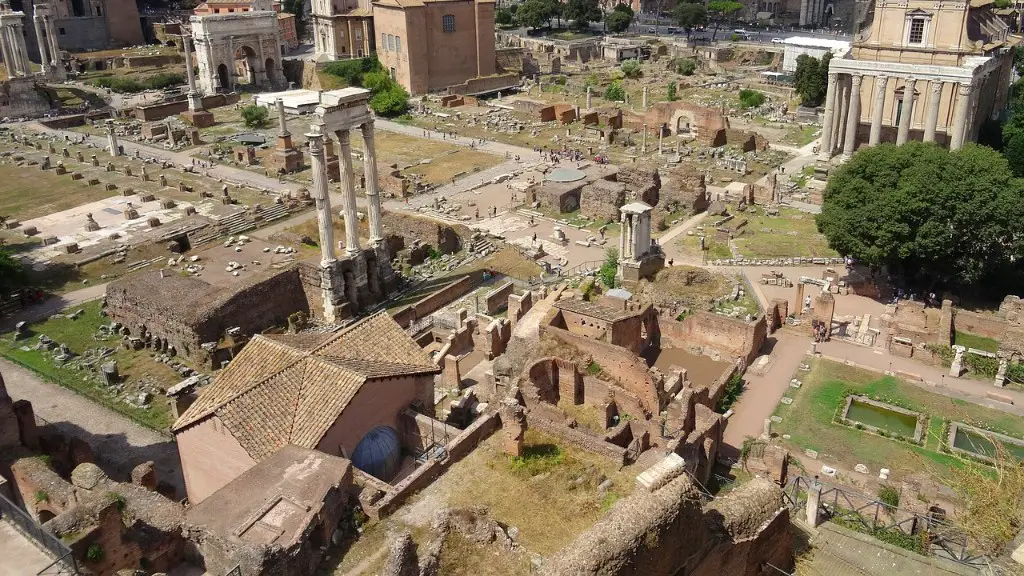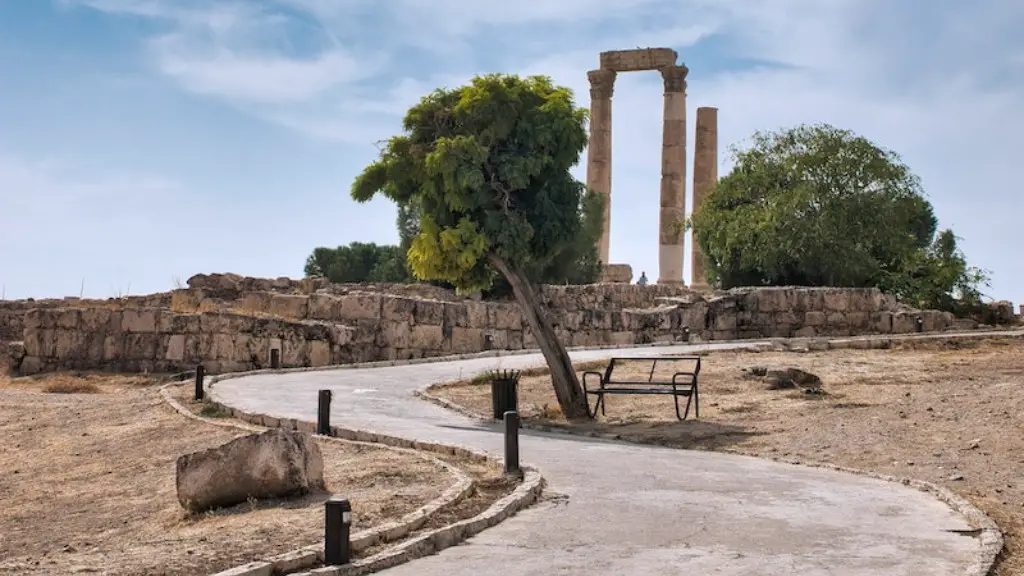The family has always been the centre of the Roman lifestyle throughout history. Ancient Rome is famous for its complex and ever-evolving family structure, from the traditional family unit to extended family clans of the wealthy patricians. The traditional Roman family consisted of a father, mother, and their children. It was common for a household to have many slaves, servants or former slaves, marriage outside the family unit was rarely seen or accepted.
The husband, or paterfamilias, held supreme power within the household. He was incharge of the estate and had the authority to discipline and punish those living under the same roof. According to ancient Roman law, the father had the right to sell his children into slavery if he chose to do so. Religion was also an important feature of family life, with the father in particular having a prominent role to play in religious ceremonies or festivals.
Women held a comparatively lower status in the family, yet they were generally respected and played a central role in the life of their children providing nurture and guidance. Roman women typically did not go out in public and were expected to stay at home, leading traditionally gender-assigned tasks such as childcare and overseeing the running of the household. The Roman marriage contract was designed to protect the position of the wife, though the husband was still in charge.
Most ancient Roman families were very close-knit and were composed of only three generations, with little to no contact between extended family. This was mainly due to the fact that Ancient Roman society was male-dominated, and extended family members had little involvement in the raising of children or taking part in decisions made within the family. Fathers had the ultimate say in all matters, making decisions on behalf of the entire family.
Although there was quite a bit of control by the father, his power sometimes ran counter to Roman law. Slaves rarely had any sort of legal standing and, outside of a strictly paternal role, had limited rights in the household. Slaves were typically treated as property and given little to no freedom. They were rarely allowed to take part in family activities and had to remain on the outskirts of the family life.
Ancient Roman law also ensured that after marriage, a woman was legally bound to her husband, and could not make decisions on her own. Women were heavily restricted in society and were not afforded rights or privileges accorded to men. They had no real independence and were at the mercy of their father or husband. Divorce was legal and quite common, but it was mainly the husband who had full control over the process.
Family life for ancient Romans was heavily influenced by law, religion and societal conventions. Fathers had the ultimate power in the family, with men able to make decisions that overruled Roman law. Slaves, although not members of the family, were still a part of family life and were subject to harsh treatment. Women had limited rights and were heavily restricted by their husband or father. Despite this, these strict rules had a huge influence on Roman family life, which still reigns true today.
Power of the Father
The paterfamilias, or father, held supreme power within the household. He was in charge of the estate and had the authority to make decisions on behalf of the entire family. Fathers of Ancient Rome had the right to sell their own children into slavery if they wanted to do so, according to Roman law. Religion was also an important feature of family life and the father had a particular role to play in religious ceremonies or festivals.
The husband often controlled the marriage contract and, even though it was designed to protect the position of the wife, they still had to comply with the expectations of the husband. The power of the father over his family was seen in many aspects, such as whether marriages within, or outside the family were allowed, education for their children and even control of finances.
Families were often devoted to ancestor worship and their family legacy, which was very important in maintaining hierarchy and order within the family. Religion played a large part in these decisions, as it did in all aspects of Roman life. Children were also expected to obey their father at all times and respect their elders.
Role of Women
In contrast to the father, women held a much lower status in the family. Despite this, they were treated with respect and played an important role in the upbringing of their children, often providing the kind of nurture that was essential in Ancient Rome. Women typically remained behind closed doors and were expected to stay at home, leading role-assigned tasks such as childcare and the running of the household.
Roman women did not have many rights or freedoms and were not allowed to make decisions on their own. They had to stay obedient to their husband or father and could not speak out against them. Divorce was legal and quite common, but it was mainly the husband that held full control over the process. Although they were expected to be subservient to their husbands, women were still respected and held a special place in Roman society.
Slaves in the Household
Slaves formed an important part of everyday life in Ancient Rome. They were treated as property and rarely allowed to take part in family activities, instead being relegated to the outskirts of family life. Slaves rarely had any legal standing and, outside of a strictly paternal role, had little to no rights in the Roman household.
The relationship between slaves and their masters was complex, with Ancient Roman law dictating that slaves should be respected and not abused in any way. However, this was rarely followed and slaves were treated as expendable and quite often mistreated. Slaves typically had to do all the most labor-intensive work and were rarely given time off or other comforts.
Education and Tradition
Education was of particular importance in Ancient Rome and, if you could afford it, all children in the household were expected to attend school. Boys and girls received different types of education and boys were taught to be warlike, patriotic and proud of their heritage. Girls on the other hand were discouraged from attending school and were expected to stay at home, becoming a housewife and mother.
Family traditions were also important in Roman society, with families often devoted to ancestor worship and their family legacy. Ancient Roman families were usually quite close-knit and were usually composed of only three generations due to the fact that extended family members had little involvement in the raising of children.
Modern Relevance
Family life for ancient Romans had many similarities to family life in the modern world, with fathers having the ultimate say in all matters, with overriding the law if need be. Women were still heavily restricted and had only limited rights, while slaves were treated as property and held few if any rights.
Despite this, old traditions and conventions still have an influence on Modern family life. Roman law still dictates much of the way family’s interact, religion still plays an important role in day to day family life, and the traditional values of respect, obligation and responsibility still remain.
Legacy of Ancient Rome
Ancient Rome was an incredible superpower that left its mark on many aspects of modern life. Its influence can still be seen today in terms of the family structure and values, politics, law and even in language. It’s legacy has been important in shaping the cultural norms and values of many societies and its influence is clearly visible in our own.
The Roman family was the ideal of a strong social unit, with the father at the head of the household making crucial decisions and the mother in an important but secondary role. Slaves were part of everyday life and education was highly valued with boys and girls receiving different types of education. Religion and tradition were also incredibly important moments and still influence many aspects of modern life.
Conclusion
Ancient Roman family life had a huge influence in shaping modern life, from politics, law and religion to the family structure and values. The father was at the head of the household, making decisions and ruling with an iron fist whilst women were heavily restricted and had limited rights. Slaves were also a common feature in Ancient Roman households, with many of them treated as expendable and mistreated.





